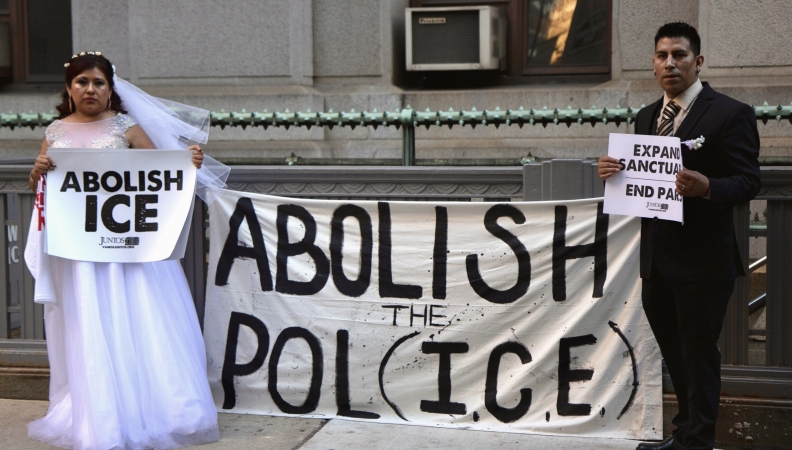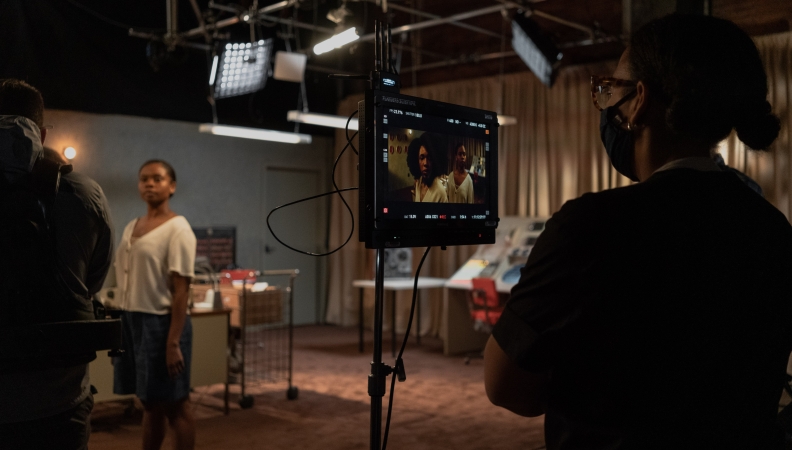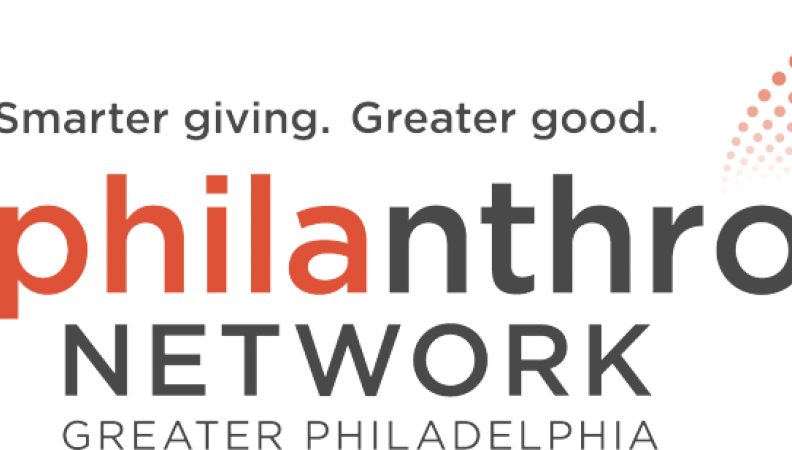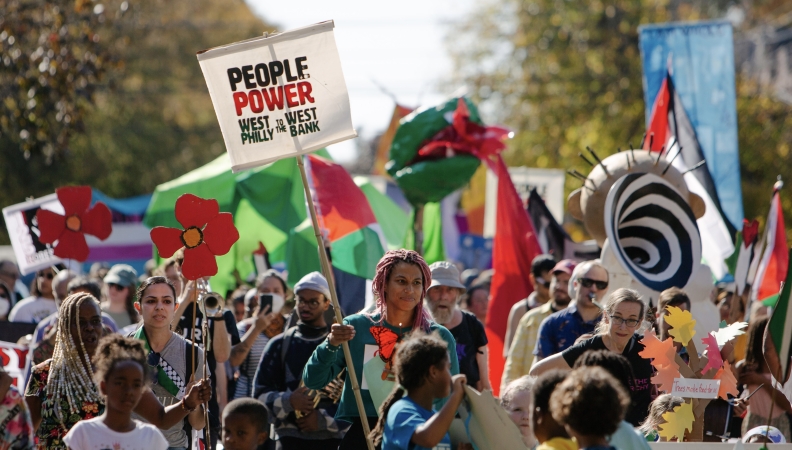What do the People Say? Honoring Community Voices and Decisions
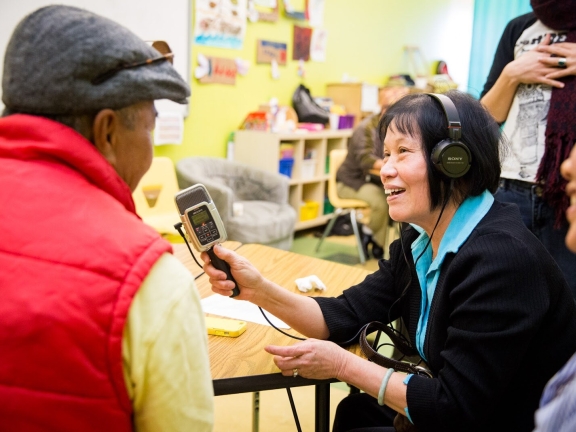
This summer, IPMF hosted our third cycle of the Community Voices Open Call. The Community Voices Fund is rooted in our values, particularly equity, as we are moving resources to projects and organizations that amplify community-led storytelling. This Open Call has also been an opportunity for IPMF to discover new projects and organizations, many of whom are receiving grants above $5,000 for the first time. This fund is an effort to remain transparent and accessible, and the awards reflect the diversity of greater Philadelphia - centering voices who are underrepresented in mainstream media, people who have a lot to say and need the tools and platforms to communicate impactfully.
We recognize that living our values as a funder means shifting decision-making power. Over the past few years, we have been learning about and experimenting with participatory grantmaking. This year, we partnered with a panel of eight community members who are deeply familiar with community-led media, storytelling, and movement building. We designed the process based on guidance from Leeway Foundation, a group that thoughtfully practices participatory grantmaking. The panel reviewed applications and made decisions using a consensus model, without influence from staff or board members, to support media making that has emerged three years into the pandemic. Their decisions were final.
This grant cycle sought to support projects in the region focused on:
- Community-owned media and local storytelling
- Community-centered news, information, and journalism
- Using archives for building community power
- Media for movements
IPMF received 86 applications requesting just over six million dollars. The budget for this fund was $800,000. The panel decided to award grants to 24 organizations, with awards ranging from $20,000-$40,000.
The essay below offers more details about our process, and summarizes insight from the panel, facilitator, and IPMF staff.
Panel Recruitment & Preparation
We partnered with Jess Solomon, a respected consultant, to help us think through the decision-making process and facilitate the panel reviews and final deliberation session. Ms. Solomon’s background in philanthropy, community arts, and social justice made her an ideal candidate.
IPMF turned to eight of our current grantee organizations to recommend individuals to join the panel: Movement Alliance Project, Scribe Video Center, PhillyCAM, Asian Arts Initiative, Al-Bustan Seeds of Culture, We Are the Seeds and another organization that has chosen to remain anonymous. All panelists have experience in community storytelling or media making and represent diverse backgrounds and identities. Panelists were compensated for their time.
Once the panel was finalized, we hosted a virtual orientation for panelists to meet each other and the facilitator, go over the grantmaking process (including technical logistics), and expectations of staff, facilitator, and panelists.
During the orientation, we asked panelists if they had a preference for reviewing a particular type of application, given their background experiences and interests. Though staff was not able to completely tailor assignments to those preferences due to the volume of applications in certain categories, we did our best to accommodate them.
IPMF staff informed panelists that their comments would be made available to applicants who requested feedback.
Review and Deliberation Process
Panelists reviewed 30-33 applications within a two-week period, with each application being read by three different people. Once panelists submitted their individual reviews, they convened virtually to discuss applications by category. The bulk of applications fell into two categories: community storytelling and movement media.
Panelists spoke to how the diverse group led to meaningful conversation where learning took place. A handful of panelists noted that they have been involved in other grant making panels before, though one panelist pointed out that this was the first time she was on a panel where the panel’s decisions were final. “The community review committee was really taking the lead in the decision-making process, and I think the staff and facilitator provided the right structure to make that possible and keep the decision-making in the committee's hands.”
During the deliberation phase, panelists were invited to talk through their top choices, lingering concerns, and questions. Reaching a consensus was challenging at times, due to the volume of strong applications. The panel had to make some hard choices – and ultimately decided to fund more projects at smaller amounts, rather than funding fewer projects at higher amounts.
IPMF staff did not sway the decision-making process, however staff played an important role in ensuring an overall smooth process. Two staff members were present during group reviews and deliberation, supporting the facilitator by keeping track of time, taking notes, and assisting with technical needs.
Moving forward
Two of the main takeaways from this year’s grant cycle were around eligibility and grant sizes. Next year, we plan to host another Community Voices Open Call, but with the following changes:
- Require that organizations should have budgets under $1 million. This will allow IPMF to concentrate support for small organizations and also make the pool of applicants smaller, which will help the decision-making process.
- Change the grant sizes. We acknowledge the tension between fully funding fewer organizations and offering equitable funding to more organizations who have been denied access to capital. As we strive to support impactful work, we recognize we need to balance an equitable approach with fully funding requests, when we can. We want projects to have the support they need to meet their goals and make an impact. Therefore, moving forward, the Community Voices Fund will offer smaller grant ranges next year. Instead of grant requests running from $25,000 to $150,000, we are discussing the range to be $15,000- $50,000.
As a foundation that strives to be accountable to communities and wants to avoid extractive relationships, it was affirming to hear that panelists found the experience to be meaningful, respectful and worthwhile. “I learned from the indicators that IPMF establishes to evaluate proposals,” explained one person. One panelist shared that participating in the panel review process will “positively impact [their] own grant writing.” Several panelists also noted that the compensation was generous. “As a working artist, it made a huge difference for me, allowing me to put the energy and focus toward deliberation that it deserved,” someone shared.
As we continue to explore participatory grantmaking, we hope to keep partnering with community members in ways that value their time, expertise and perspectives. We believe that participatory grantmaking is one way to practice trust-based philanthropy. We hope to continue to learn about this approach and are eager to talk to other funders who are already on this journey – or curious about it. Those who understand that lifting up community voices and trusting community decisions, go hand in hand.
Read our press release to learn more about the 2023 Community Voices grant recipients
photo source: vietlead.org
